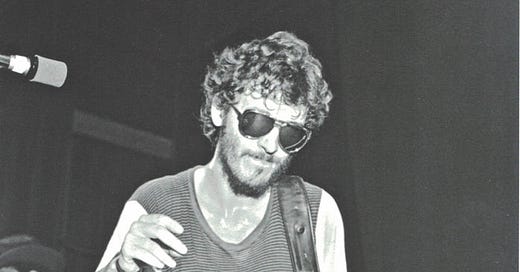"The rock star we all of us wanted to be in our dreams."
On seeing Bruce Springsteen for the first time, 1974. A guest post by Chris Charlesworth.
In the second of two extracts from Chris Charlesworth’s memoir Just Backdated: Melody Maker, Seven Years In the Seventies (published this Thursday, September 27 by Spenwood Books), our intrepid Melody Maker reporter finds himself traveling from NYC to Norfolk, VA by way of Nashville, TN, because it’s 1974, and record company execs fly around the States …




